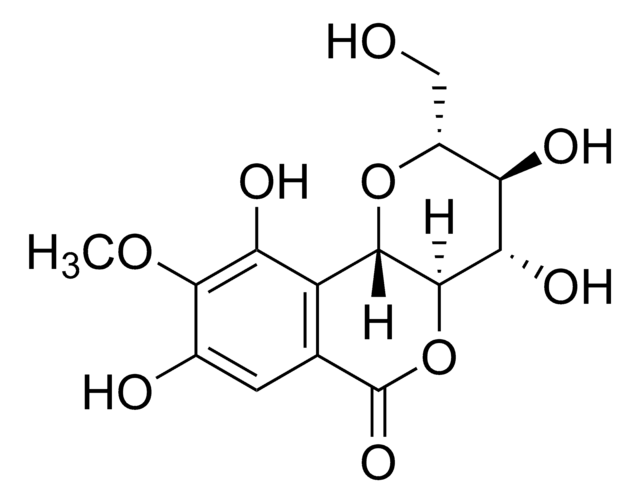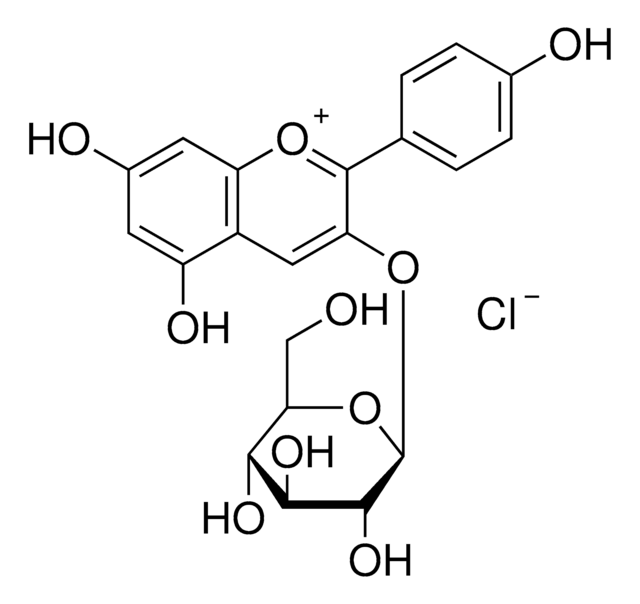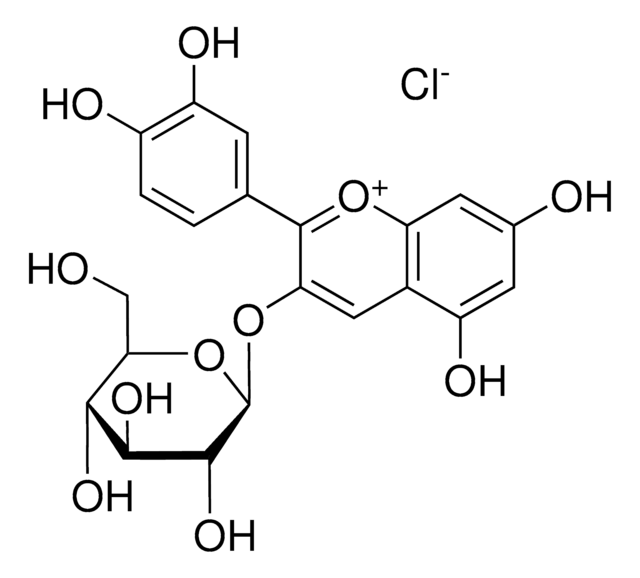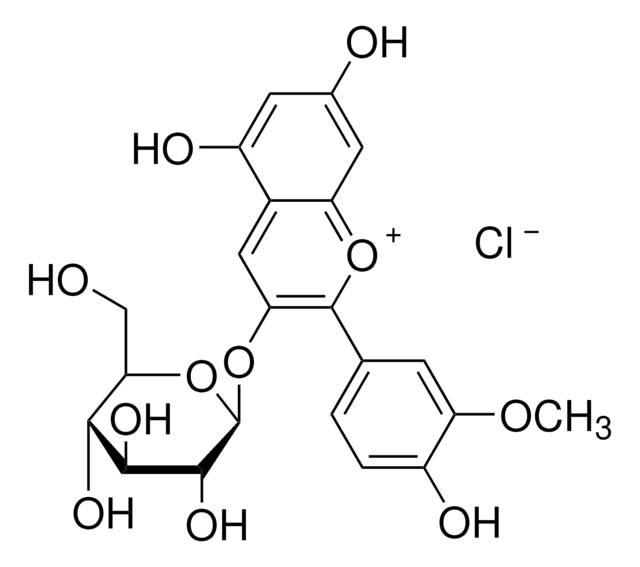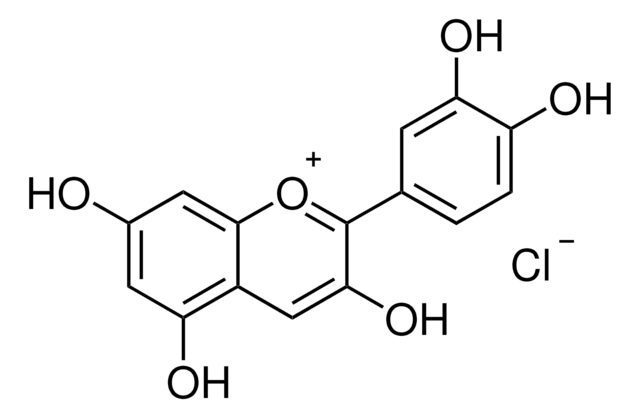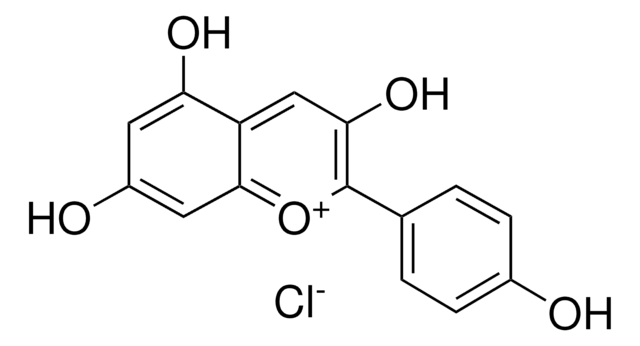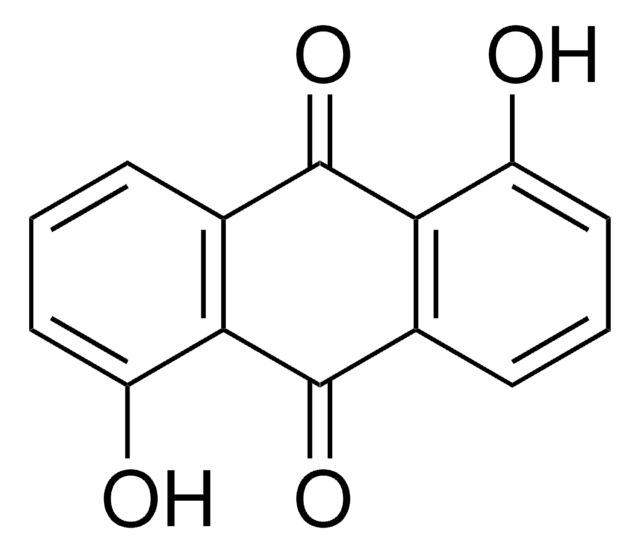53489
Callistephin chloride
≥95.0% (HPLC)
Synonym(s):
3-(Glucosyloxy)-4′,5,7-trihydroxyflavylium chloride, Pelargonidin 3-O-glucoside chloride
About This Item
Recommended Products
biological source
synthetic
Quality Level
Assay
≥95.0% (HPLC)
form
powder
shipped in
wet ice
storage temp.
−20°C
SMILES string
[Cl-].OC[C@H]1O[C@@H](Oc2cc3c(O)cc(O)cc3[o+]c2-c4ccc(O)cc4)[C@H](O)[C@@H](O)[C@@H]1O
InChI
1S/C21H20O10.ClH/c22-8-16-17(26)18(27)19(28)21(31-16)30-15-7-12-13(25)5-11(24)6-14(12)29-20(15)9-1-3-10(23)4-2-9;/h1-7,16-19,21-22,26-28H,8H2,(H2-,23,24,25);1H/t16-,17-,18+,19-,21-;/m1./s1
InChI key
CAHGSEFWVUVGGL-UBNZBFALSA-N
Looking for similar products? Visit Product Comparison Guide
Biochem/physiol Actions
Packaging
WGK
WGK 3
Flash Point(F)
Not applicable
Flash Point(C)
Not applicable
Certificates of Analysis (COA)
Search for Certificates of Analysis (COA) by entering the products Lot/Batch Number. Lot and Batch Numbers can be found on a product’s label following the words ‘Lot’ or ‘Batch’.
Already Own This Product?
Find documentation for the products that you have recently purchased in the Document Library.
Customers Also Viewed
Our team of scientists has experience in all areas of research including Life Science, Material Science, Chemical Synthesis, Chromatography, Analytical and many others.
Contact Technical Service